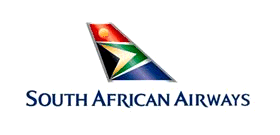 South Africa Pursues Fifth-Freedom Rights in Nigeria to Expand SAA and Airlink’s Regional Reach
South Africa Pursues Fifth-Freedom Rights in Nigeria to Expand SAA and Airlink’s Regional Reach
South Africa has formally requested the granting of fifth-freedom traffic rights from Nigeria, a strategic move aimed at empowering South African Airways (SAA) and Airlink to operate flights beyond Lagos to additional regional destinations. The request was tabled during high-level bilateral discussions at ICAN 2025 in Punta Cana, reflecting Pretoria’s determination to enhance its airlines’ operational footprint across West Africa amidst intensifying competition on the continent.
Fifth-freedom rights allow carriers to transport passengers between two foreign countries as part of a service connecting to their own country, effectively opening new opportunities for route development and market access. For SAA and Airlink, securing such rights in Nigeria would mark a significant enhancement of their regional network flexibility, enabling the airlines to link Lagos not only to South Africa but also to strategic cities across West and Central Africa.
This initiative underscores South Africa’s intent to strengthen bilateral aviation ties with Nigeria, the continent’s most populous nation and a critical hub in West African air transport. By leveraging these expanded rights, SAA and Airlink could introduce new one-stop services, increase aircraft utilization, and tap into lucrative intra-African passenger flows that have traditionally been dominated by non-African carriers.
The timing of the request is no coincidence. The African aviation market is undergoing a period of rapid transformation, with increased liberalization, new entrants, and shifting alliances. As more African countries embrace open skies policies and the Single African Air Transport Market (SAATM) initiative, competition for traffic rights and market share is intensifying. South Africa’s proactive stance in these negotiations signals its commitment to ensuring its national carriers remain agile and competitive within this evolving landscape.
For the Nigerian travel sector, the potential approval of fifth-freedom rights promises a number of benefits. Increased connectivity via Lagos could drive more transit traffic, foster new tourism and business linkages, and stimulate economic activity in key cities served by these extended routes. It could also encourage Nigerian carriers to pursue reciprocal rights in South Africa or other regional markets, further deepening cross-border collaboration.
From the perspective of SAA and Airlink, the ability to operate beyond Lagos would unlock new commercial opportunities, allowing the airlines to optimize their networks and respond dynamically to market demand. Such flexibility is especially valuable as the industry recovers from recent disruptions and looks to capitalize on growing intra-African travel demand. Enhanced route options and more frequent services could also deliver greater convenience and choice for passengers, boosting the attractiveness of both airlines in a competitive market.
For the broader African aviation industry, South Africa’s bid is a clear indication of the increasing importance of regional alliances and market access rights in shaping future growth. As airlines seek to extend their reach, partnerships and liberalized traffic rights are becoming critical tools for building sustainable networks and driving profitability. The outcome of the ongoing negotiations between South Africa and Nigeria will be closely watched by industry stakeholders, as it may set important precedents for other carriers and bilateral relationships across the continent.
For African travel professionals, these developments highlight the need to stay informed on regulatory changes and emerging route opportunities. Expanding fifth-freedom operations can open up new markets, diversify revenue streams, and offer clients more travel choices—key factors in maintaining a competitive edge as the sector evolves.
As the dialogue continues, both countries have an opportunity to demonstrate leadership in advancing African aviation integration. If successful, the expanded rights would not only benefit SAA and Airlink but also signal a broader willingness to embrace open, mutually beneficial skies across Africa—laying the groundwork for a more connected and prosperous regional air transport landscape.
